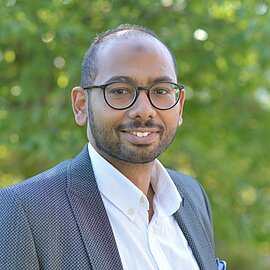ICRAFS
The current impact of COVID-19 and the Russian war in Ukraine on global agricultural commodity trade and food security in Sub-Saharan Africa
Research domain:
Securing the world’s food supply and competitive supply chains
Project duration:
01.10.2023
- 30.09.2026
Investigated countries:
Nigeria,
Togo

The project ICRAFS follows the One Health approach. This concept is based on the idea that the health of humans, animals and the environment is closely interrelated. One Health is important to achieve sustainable agricultural development and the related Sustainable Development Goals (SDGs).
The main objective of the project (ICRAFS) is to evaluate the impact of current extreme events and multiple crises (climate change, COVID-19 pandemic, the ongoing war in Ukraine, etc.) on food systems and food security in Sub-Saharan Africa (SSA). Specifically, the project proposes to evaluate the impact of the COVID-19 pandemic on agricultural commodities trade balances in SSA and assess the impact of Russian wheat import disruptions due to the war in Ukraine on food security in SSA. In addition, the project evaluates the impact of adopting climate-smart farming practices on farmers’ returns, livelihoods and well-being in SSA.
The research findings will be useful for agricultural policymakers and other stakeholders in improving food security through sustainable food systems in SSA. Furthermore, the research findings will guide agricultural policymakers and other stakeholders in SSA to take the best route in ensuring One Health in food systems for sustainable agricultural development and related sustainable development goals.
Support
Project Partners:
- University of Nigeria, Nsukka (UNN), Faculty of Agriculture and Department of Agricultural Economics
- University of Lomé (Togo), Higher School of Agronomy, Department of Agricultural Economics
Project Staff
Prof. Dr. Dr. h.c. mult. Thomas Glauben (Project leader)
go to profile
Prof. Dr. Osama Naser El-Din Ahmed (Project coordinator)
go to profile
Mawussi Kossivi Soviadan

